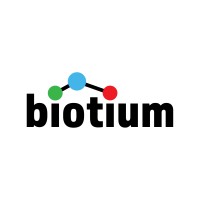NGF Receptor p75 Monoclonal / APC / NGFR5
Product Details
| Description | Mouse Monoclonal anti-NGFR (Nerve-Growth Factor Receptor) (NGFR5) | |
|---|---|---|
| Conjugate | APC | |
| Clone | NGFR5 | |
| Target Species | Baboon, Feline, Ferret, Human, Monkey, Rabbit | |
| Applications | FC, IF, IHC-P | |
| Supplier | Biotium | |
| Catalog # | Sign in to view product details, citations, and spectra | |
| Size | ||
| Price | ||
| Antigen | ||
| Host | ||
| Isotype |
About NGF Receptor p75
Nerve growth factor receptor contains an extracellular domain containing four 40-amino acid repeats with 6 cysteine residues at conserved positions followed by a serine/threonine-rich region, a single transmembrane domain, and a 155-amino acid cytoplasmic domain. The cysteine-rich region contains the nerve growth factor binding domain. [provided by RefSeq, Jul 2008]
Nerve growth factor receptor contains an extracellular domain containing four 40-amino acid repeats with 6 cysteine residues at conserved positions followed by a serine/threonine-rich region, a single transmembrane domain, and a 155-amino acid cytoplasmic domain. The cysteine-rich region contains the nerve growth factor binding domain. [provided by RefSeq, Jul 2008]
About APC
Allophycocyanin (APC) is a fluorescent protein derived from cyanobacteria and red algae and a potent donor fluorophore to create tandem dyes that can be excited off the 633-640 nm laser. APC has an excitation peak at 650 nm and a emission peak at 660 nm.
Allophycocyanin (APC) is a fluorescent protein derived from cyanobacteria and red algae and a potent donor fluorophore to create tandem dyes that can be excited off the 633-640 nm laser. APC has an excitation peak at 650 nm and a emission peak at 660 nm.
Experiment Design Tools
Panel Builders
Looking to design a Microscopy or Flow Cytometry experiment?
Validation References
Reviews & Ratings
| Reviews |
|---|
Looking for more options?
793 NGF Receptor p75 antibodies from over 33 suppliers available with over 85 conjugates.





